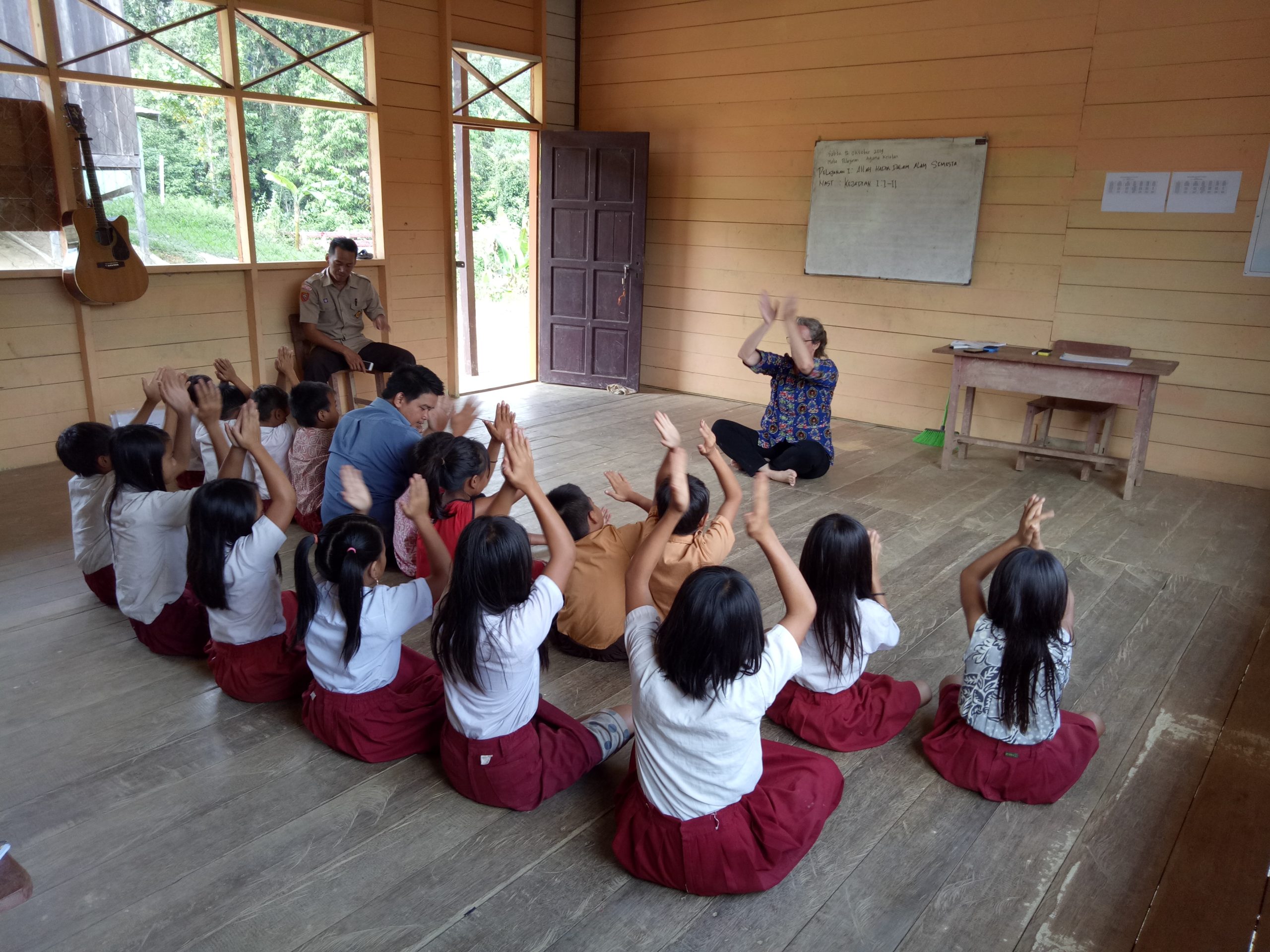
The Eco Hapakat Foundation is particularly active in the field of education. The Indonesian education system has improved significantly over the past 30 years. The curriculum now meets modern standards, and the training of teachers has seen considerable progress.
However, a major issue remains: well-trained teachers are often unwilling—or only accept under immense pressure from the education authorities—to take up positions in the most remote villages. Travel costs to these areas can be extremely high. Internet and phone connections are often unreliable or nonexistent, and the demands on the mostly young and inexperienced teachers are significantly greater in remote villages than in urban areas.
In many villages, there are assistant teachers who are residents of the community. Unfortunately, most of them have little to no formal pedagogical or didactic training. Their academic background is often limited to secondary education or, at best, high school level.
The Eco Hapakat Foundation addresses this gap by investing in non-formal training and further education for these assistant teachers. On average, they spend significantly more time at the school than government-trained and appointed lead teachers. Through this, we aim to improve the quality of education in targeted areas.
We are also active in environmental education, women’s empowerment, and the promotion of traditional crafts. In agriculture, forestry, and agroforestry, we offer courses and practical guidance.
Our goal is to introduce more job security through alternative farming and land management systems. By supporting micro, small, and medium-sized enterprises, we contribute to the economic development of villages and regions.
Ecotourism also leads to increased income for the local population. The Dayak and Punan peoples can work as trackers, local guides, and porters. Women can earn additional income by providing food and lodging for guests, and we charter local transportation such as cars, speedboats, motorized canoes, and motorcycles.
Another important area where the Eco Hapakat Foundation is active is the legal field. Traditional customary law applies in large parts of Indonesia. This is generally recognized, based on oral traditions, and plays a particularly important role in important acts such as birth, marriage and death. In contrast, there is public law. Public law recognizes certain aspects of customary law, and there are certain mechanisms that must be observed so that customary law can be recognized and codified by public law under certain circumstances. Our foundation supports people in the outback in such matters.